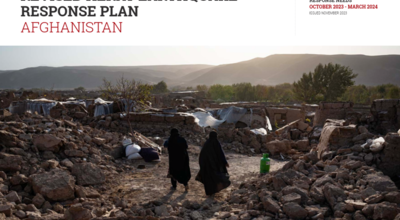UN agency signs plan of action with Japan for regional cooperation on terrorism, drugs
TOKYO - The United Nations agency leading global efforts to fight against illicit drugs and international crime signed a new joint plan of action with Japan earlier this week for regional cooperation in Africa and Asia, including in Afghanistan.
According to the United Nations Office on Drugs and Crime (UNODC), both the UN agency and Japan pledged in the plan – signed in the Japanese capital, Tokyo, on Monday – to enhance regional cooperation on areas of combating terrorism, trafficking in drugs, human trafficking and cybercrime.
"The United Nations Office on Drugs and Crime and the Government of Japan have a long and fruitful history of cooperation across the globe, in areas ranging from countering illicit narcotic drugs, combating terrorism and strengthening crime prevention and criminal justice," said the UNODC Executive Director, Yury Fedotov. “I welcome this new Joint Plan of Action, which will serve to strengthen our efforts still further.”
Mr. Fedotov signed the joint plan of action with Kenji Hiramatsu, Deputy Vice-Minister and Director General of the Foreign Affairs Bureau of the Foreign Ministry of Japan, in the sidelines of the Fifth Tokyo International Conference on African Development (TICAD V).
Addressing the conference in Tokyo, Secretary-General Ban Ki-moon said peace and development are mutually reinforcing. "Regional approaches are essential to stop the spread of insecurity," said Mr. Ban.
A UNODC survey report released earlier this year said Afghanistan continues to be the largest grower of illicit opium in the world, with the country accounting for an estimated 64 per cent of its global production in 2012.
The results of the Afghan Opium Survey of UNODC showed “there is still much work to be done in countering opium poppy cultivation and production.”
Meanwhile, a research report released by a Kabul-based independent research organization, Afghanistan Research and Evaluation Unit (AREU), on Tuesday, said Afghanistan cannot afford to be complacent with regards to poppy cultivation. “All gains must be carefully measured, policies and programmes contextualized, and a long-term commitment made visible,” said the report.
Its research based in four districts of Balkh and Badakhshan provinces concluded that coercive approaches to tackle poppy cultivation will be unsustainable in the longer-term in Balkh, whereas a half-hearted coercion in Badakhshan has led to uneven results.
 UN
UN








